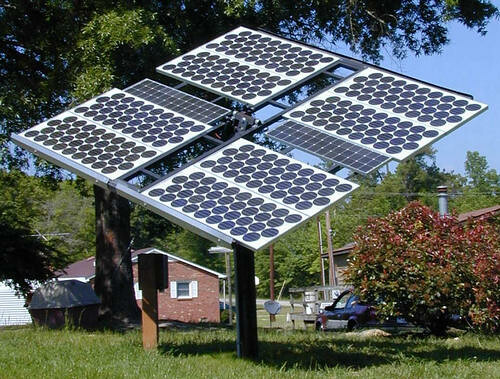:}
Community Energy Systems is a nonprofit 501c3 organization chartered in Illinois in Sangamon County. As such we are dependent on public donations for our continued existence. We also use Adsense as a fundraiser. Please click on the ads that you see on this page, on our main page and on our Bulletin Board (Refrigerator Magnets) and you will be raising money for CES. We say a heartfelt THANK YOU to all who do.
:}
I guess this is the only way to test the technology without causing a war. Brazil is such an inviting target because they have no military. But who is next South Africa, the Philippines, or Indonesia?http://www.cbsnews.com/stories/2009/11/06/60minutes/main5555565.shtml
Nov. 8, 2009
Cyber War: Sabotaging the System
60 Minutes: Former Chief of National Intelligence Says U.S. Unprepared for Cyber Attacks
“We know that cyber intruders have probed our electrical grid, and that in other countries cyber attacks have plunged entire cities into darkness,” the president said.
President Obama didn’t say which country had been plunged into darkness, but a half a dozen sources in the military, intelligence, and private security communities have told us the president was referring to Brazil.
Several prominent intelligence sources confirmed that there were a series of cyber attacks in Brazil: one north of Rio de Janeiro in January 2005 that affected three cities and tens of thousands of people, and another, much larger event beginning on Sept. 26, 2007.
That one in the state of Espirito Santo affected more than three million people in dozens of cities over a two-day period, causing major disruptions. In Vitoria, the world’s largest iron ore producer had seven plants knocked offline, costing the company $7 million. It is not clear who did it or what the motive was.
But the people who do these sorts of things are no longer teenagers making mischief. They’re now likely to be highly trained soldiers with the Chinese army or part of an organized crime group in Russia, Europe or the Americas.
“They can disrupt critical infrastructure, wipe databases. We know they can rob banks. So, it’s a much bigger and more serious threat,” explained Jim Lewis, director of the Center for Strategic and International Studies.
Lewis led a group that prepared a major report on cyber security for President Obama.
“What was it that made the government begin to take this seriously?” Kroft asked.
“In 2007 we probably had our electronic Pearl Harbor. It was an espionage Pearl Harbor,” Lewis said. “Some unknown foreign power, and honestly, we don’t know who it is, broke into the Department of Defense, to the Department of State, the Department of Commerce, probably the Department of Energy, probably NASA. They broke into all of the high tech agencies, all of the military agencies, and downloaded terabytes of information.”
:} dot dot dot in reverse
Today it’s not only possible, all of that has actually happened, plus a lot more we don’t even know about.
Center for Strategic and International Studies
Sandia National Laboratories
IntelFusion
It’s why President Obama has made cyber war defense a top national priority and why some people are already saying that the next big war is less likely to begin with a bang than a blackout.
:}
Last night it happened again…
http://news.yahoo.com/s/ap/20091111/ap_on_re_la_am_ca/lt_brazil_blackouts
Lights return following Brazilian blackout
RIO DE JANEIRO – Brazil emerged early Wednesday from a widespread power outage that plunged its major cities and at least nine states into darkness for hours, prompting security fears and concern from residents about another black eye for a country hosting the 2016 Olympic Games.
Power went out for more than two hours in Rio de Janeiro, Sao Paulo and several other major cities, affecting millions of people, after transmission problems knocked one of the world’s biggest hydroelectric dams offline. Airport operations were hindered and subways ground to a halt.
All of neighboring Paraguay was plunged into the dark, but for less than a half hour.
Brazilian authorities blamed storms that took down power lines and towers, causing a domino effect that rippled across the region.
Lights twinkled back on along Rio’s Copacabana beach, in South America‘s largest city of Sao Paulo and in Paraguay‘s sleepy capital of Asuncion. But some traffic lights were still out in both Rio and Sao Paulo and traffic officials were expecting drivers to face difficulties the rest of the day, according to local media.
:}
Then again maybe it is just the third world:
http://www.forbes.com/feeds/afx/2006/02/19/afx2537855.html
AFX News Limited
South Africa hit by power outages
02.19.2006, 05:59 AM
JOHANNESBURG (AFX) – Parts of southwestern South Africa as well as its largest city, Johannesburg, were hit by power failures Sunday, disrupting households and bringing trains to a halt, local news reports said.
Power supply was restored to some parts of the Western Cape province which was without any power in the early hours of Sunday, power utility ESKOM spokesman Fanie Zulu said.
‘We are in the process of checking interaction between the national control and the City of Cape Town control room. They are increasing their supply,’ Zulu told the local SAPA news agency.
‘There are no trains running in the province until the power is restored,’ said Metrorail spokeswoman Riana Jacobs added.
Officials blamed the cuts on faults within the transmission lines because of misty conditions and residual pollution from fires which had recently raged in the province.
Areas in Johannesburg were also hit by power cuts, knocking out traffic lights and disrupting households, SABC radio news reported.
:}
Then again maybe it is going on under our noses.
http://www.philstar.com/Article.aspx?articleId=506242&publicationSubCategoryId=67
Short power outages seen in Mindanao
By Lino De La Cruz (The Philippine Star) Updated September 18, 2009 12:00 AM
Iligan City, Philippines – Short rotational power outages are expected in some areas in Mindanao as four hydroelectric plants and two independent power producers undertake repairs and preventive maintenance work this week.
Thus, the National Grid Corp. of the Philippines (NGCP) said it has asked power utility firms and electric cooperatives in Mindanao to set up a load reduction plan amid the situation.
Eugene Bicar, NGCP-Mindanao systems operation head, said the power plants have been temporarily shut down for preventive maintenance work.
He said requests have been made to power utilities and electric cooperatives in Mindanao to drop some of their feeders to address the generation problem and prevent overloading of transmission lines.
Power supply is now limited as the Agus 1 (unit 2) in Marawi City, Agus 5 (unit 1) in Iligan City, Agus 2 (unit 1) in Lanao del Sur, and the Pulangi hydroelectric plant in Bukidnon are now temporarily shut downAlso in the same situation are the Western Mindanao Power Corp. in Zamboanga City and the STEAG coal-fired power plant in Villanueva, Misamis Oriental.
“Short rotational (power outages) in some areas in Mindanao are expected during the peak hours from 10 a.m. to 4 p.m. and 6 p.m. to 8 p.m. daily based on actual system condition until curtailment is lifted,” Bicar said.
However, he said steps are being made to correct the problems of the power plants as soon as possible so that power supply in the Mindanao grid is normalized with a comfortable level of generation reserves.
:}
What? And you think there are power outages in Indonesia? Comeon I don’t even have to Google or Bing that.
:}






 Browse Products by Category
Browse Products by Category












 ABOUT LRN
ABOUT LRN 







 Welcome to our free online resource for off-grid living.
Welcome to our free online resource for off-grid living.

 In the summer of 1980, my wife, three-month old son and I moved “off-grid”. We loved living in San Francisco but wanted to live a simpler, more independent lifestyle, and so we bought a small cabin with land on a rural island in the Pacific Northwest. Since there were no services to the island, our home had no electricity. Residents of the island had to create their own electricity or do without.
In the summer of 1980, my wife, three-month old son and I moved “off-grid”. We loved living in San Francisco but wanted to live a simpler, more independent lifestyle, and so we bought a small cabin with land on a rural island in the Pacific Northwest. Since there were no services to the island, our home had no electricity. Residents of the island had to create their own electricity or do without.